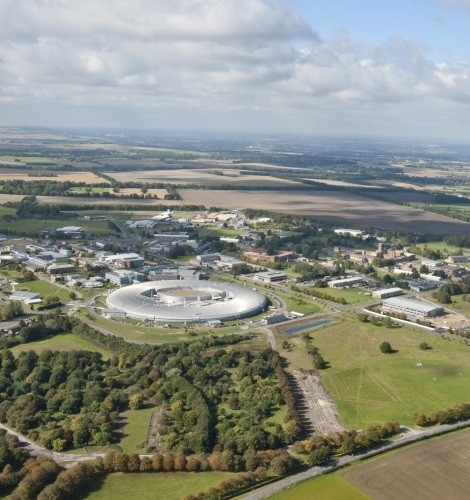Harwell Campus: Meet the STEM entrepreneurs fuelling the UK's space economy
'What did you want to be when you grow up?' We all heard this as children, and popular answers included fireman, pilot or adventurer. But for many of us who looked up at the night sky, it was the thought of being an astronaut which filled us with wonder.
As young people grow up many find science, technology, engineering and mathematics subjects (Stem) intimidating, and, put off by popular images of scientists as bookish academics apart from mainstream society, pursue ostensibly easier and more lucrative paths. Until now.
New space age
The explosion in technological capability that has given us such devices as smart phones and virtual reality headsets is also ushering in a new era in space technology where entrepreneurs are king and where Stem capability has never been more in demand. Space is no longer the exclusive preserve of governments with large budgets. Instead private sector organisations are increasingly exploiting a lucrative commercial space market.
At the Harwell Campus, just south of Oxford, government employees mingle with space entrepreneurs in a 710-acre campus known as the UK's space gateway. From comet-chasing spacecraft to telescopes that monitor our fragile terrestrial environment, companies at Harwell are quite literally creating new frontiers in space technology.
They certainly don't lack ambition. As the cost of space technology comes down, companies are developing new applications for low-cost satellites and even fleets of such spacecraft; and the UK Government has recently expressed the ambition to develop a low-cost launch vehicle aimed at stimulating this market.

At the same time, satellites are becoming increasingly embedded in everyday life, for navigation, communications and monitoring our environment, opening up exciting opportunities for new space-enabled services. Tech graduates with an undergraduate degree or Masters can now start up a space business with relatively little investment, and immediately compete with multinational companies employing thousands.
Culture of innovation
And it's the people behind these companies that are making the greatest contribution to this culture of innovation. These are individuals driven by a passion for science, whose vision transcends the words 'it can't be done.' The cluster effect at Harwell creates a collision of ideas, a new way of solving problems and finding solutions.
The campus has over 5,000 of the country's top industrialists, entrepreneurs and investors based just a few miles away from one of the top universities in the world. Harwell is a hotbed of innovation and entrepreneurial spirit, which is what is needed to succeed in this fast growing UK sector.
The UK space economy has grown at an average rate of 8% over the last decade, and is expected to be worth £40bn by 2030, or 10% of the global market. Leading this way are Harwell Campus companies, building for space and applying space technology back here on Earth.

Oxford Space Systems is an award-winning space technology business that's pioneering the development of a new generation of deployable structures that are lighter, less complex and lower cost than those in current commercial demand. Technology originally designed to analyse comets is being used by Insect Research Systems to help prevent the spread of bedbugs. With Britain's first spaceport to be built in 2018, and firms at Harwell currently benefitting from over £1bn of infrastructure funding, now is the time to look to the stars and boost Britain's economy.
Something special
There's an entrepreneurial spirit in the air at Harwell. To paraphrase William Gibson "the future is already here". Harwell, in all its complex vibrancy, appeals to the sense that space is not something to be feared, but that anyone can create a business that can reach for the stars. For many young space entrepreneurs at Harwell, that hope is being dreamed again, and it's their innovations which are turning such dreams into reality.
© Copyright IBTimes 2025. All rights reserved.






















